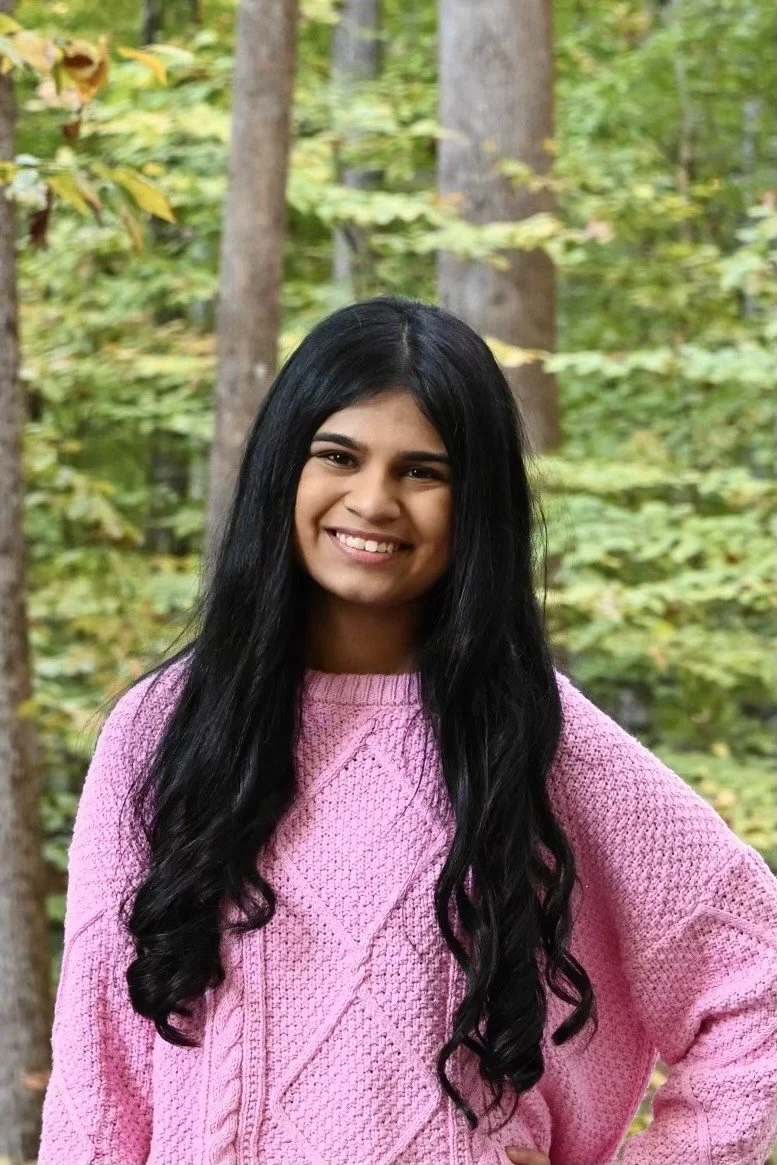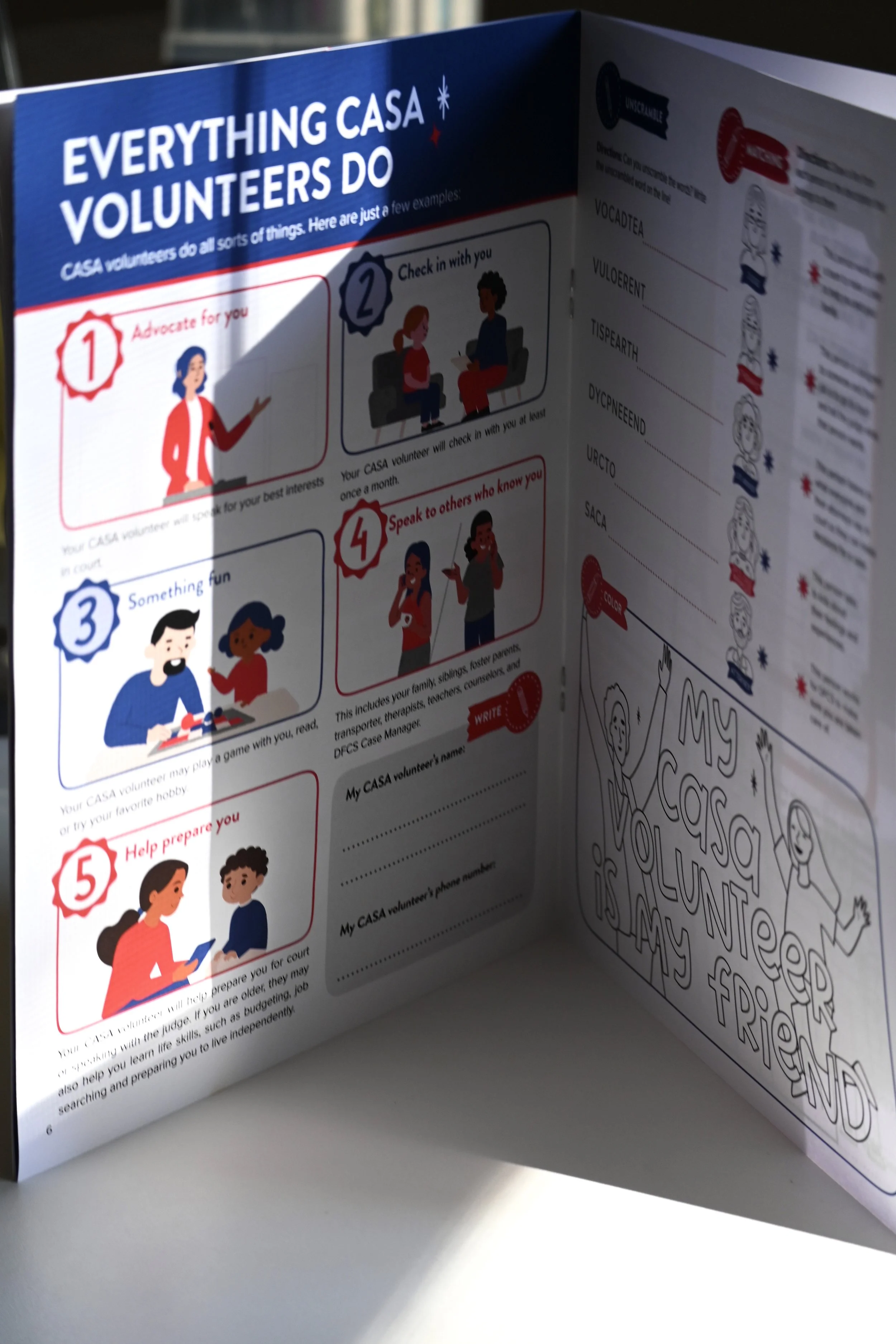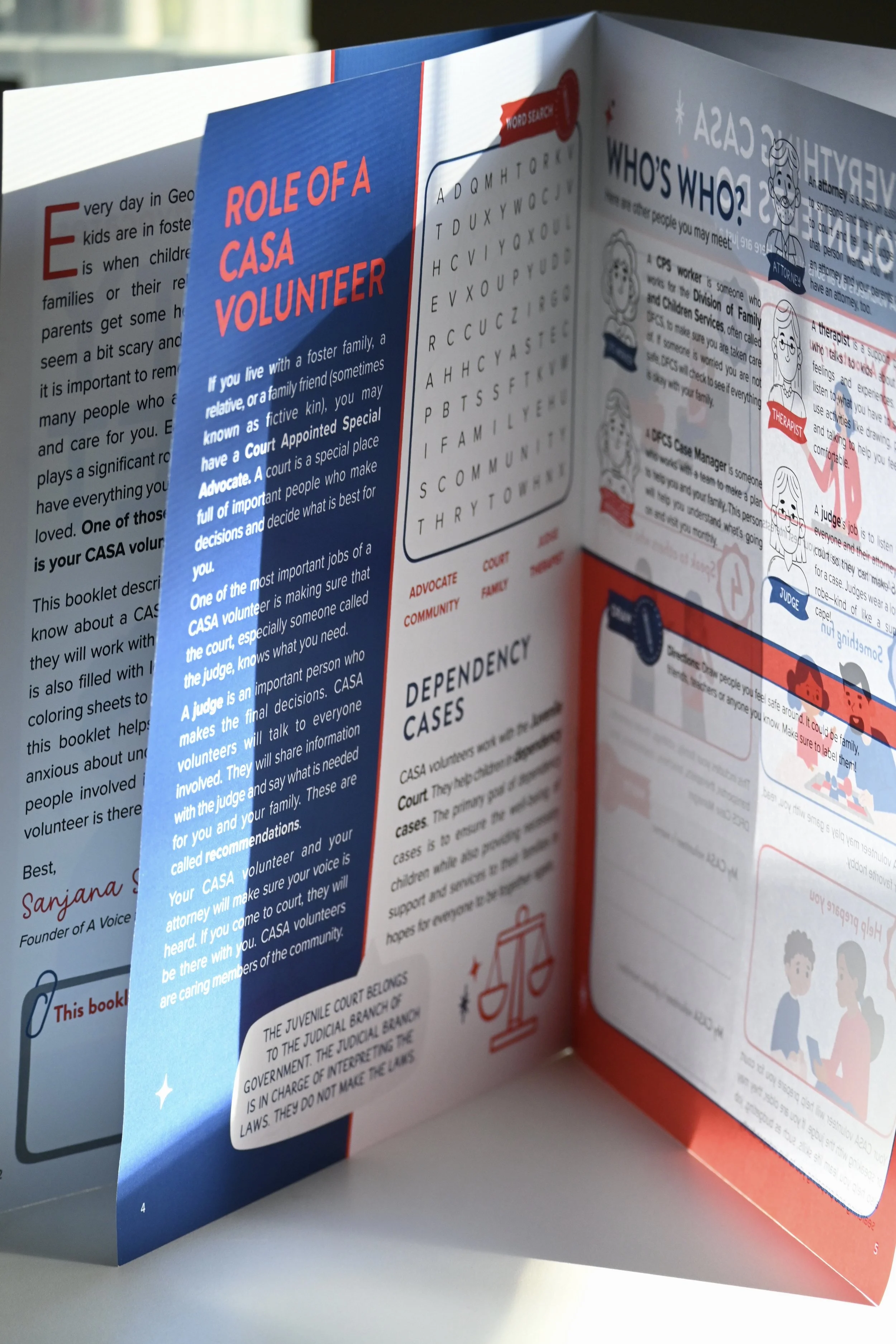Spotlight: How Sabrina Shah Is Helping Kids in Court Feel Seen, Heard, and Understood
For most college-bound seniors, the summer before freshman year is filled with packing lists, dorm shopping, and anticipation. For Sabrina Shah, it’s also been about ensuring children in foster care feel less alone when they step into a courtroom.
Sabrina, an incoming freshman at the University of North Carolina at Chapel Hill, is the founder of The AdvoKit, a nonprofit dedicated to reducing the anxiety and stress children experience when navigating the juvenile court process. Her mission: to make the experience less intimidating and more empowering through fun, educational, and interactive resources.
A Spark of Inspiration
Sabrina’s idea for The AdvoKit was born after meeting a young girl in foster care who confided in her about the whirlwind of foster homes, group placements, and court dates that had marked her childhood. The girl described how frightening hearings and meetings with unfamiliar adults could be.
“Her story made me realize that there was a need to develop educational resources to help make the juvenile court system less intimidating for these children,” Sabrina recalls.
Sabrina also drew from her own life. Raised by a single mother, she understood the deep fear of losing a parent — a fear many children in the foster system live with daily.
“Every child deserves a safe and loving home with guardians they can trust,” she says. “That’s why I feel compelled to help them.”
Turning Vision into Action
One of The AdvoKit’s most impactful projects is the CASA Activity Booklet — a vibrant, trauma-informed workbook designed to help CASA volunteers connect with children on their cases.
The booklets serve a dual purpose:
Helping children understand who their CASA volunteer is and what other adults in their case do.
Helping CASA volunteers get to know the child — their likes, fears, and hopes — in a way that feels safe and approachable.
Filled with games, drawing prompts, and open-ended questions like “What I Want My CASA to Know About Me,” the booklets break the ice during early visits and foster meaningful conversation. Activities such as drawing family connections or solving a maze might seem simple, but they often open the door to trust and understanding.
Local Impact, National Reach
Since launching, Sabrina has worked directly with CASA leadership teams to customize booklets for different states, ensuring they reflect each state’s laws and terminology. This dedication has helped her reach more than 150 CASA and Guardian ad Litem programs nationwide — with a projected 25,000 booklets distributed by the end of 2025. And we are proud to be one of the local programs utilizing a Tarrant County-customized booklet in our cases.
Volunteers often tell her how the booklets transformed their initial meetings with children, making it easier to connect and start building a rapport.
Lessons Learned and a Look Ahead
Through The AdvoKit, Sabrina has not only learned about juvenile law and child welfare policy but also gained skills in nonprofit management, communication, and collaboration.
“Most importantly, I’ve learned that anyone — no matter their age or experience — can make a difference. All you need is a heart and a lot of determination,” she says.
Her goal is to create a CASA Activity Booklet for all 50 states and continue developing new projects to support children navigating the court process.
How You Can Help
Sabrina funds much of the project herself and welcomes donations to keep the resources affordable for programs across the country. If you’d like to support her work, you can reach her at sanjananyc@gmail.com.
CASA of Tarrant County is proud to spotlight young leaders like Sabrina whose creativity and compassion make a real difference in the lives of children in foster care.



